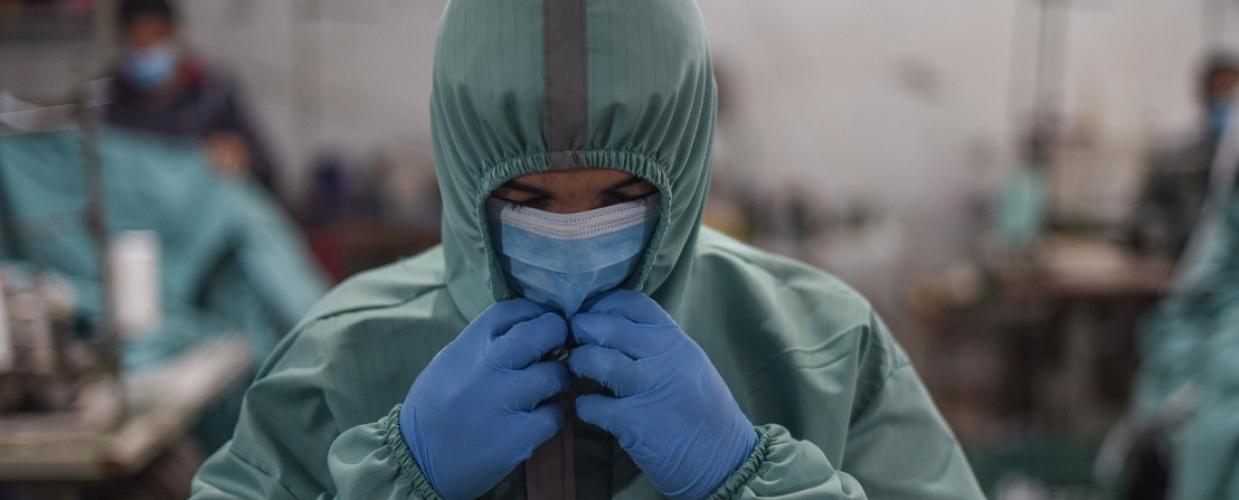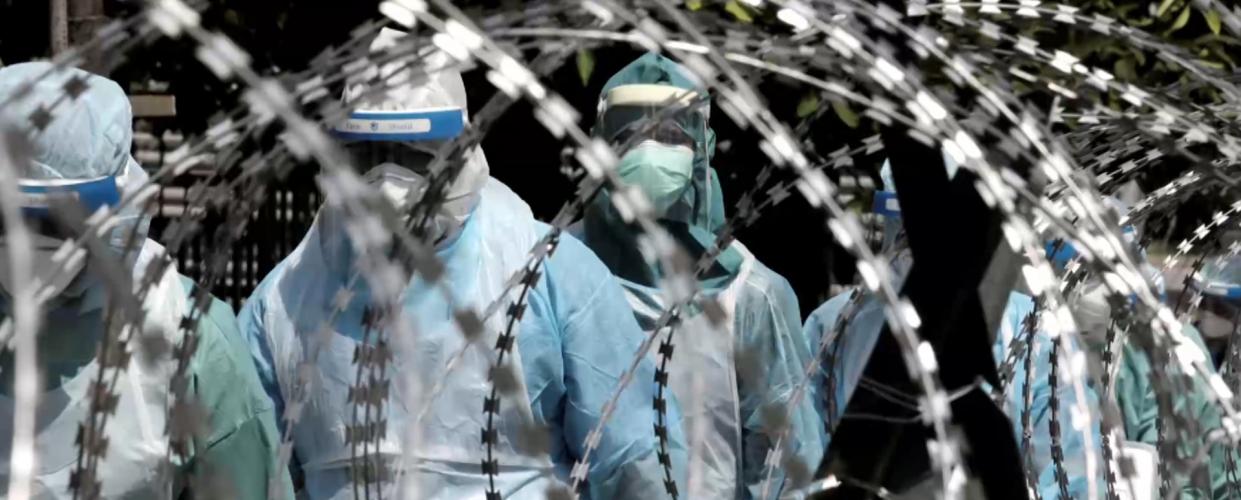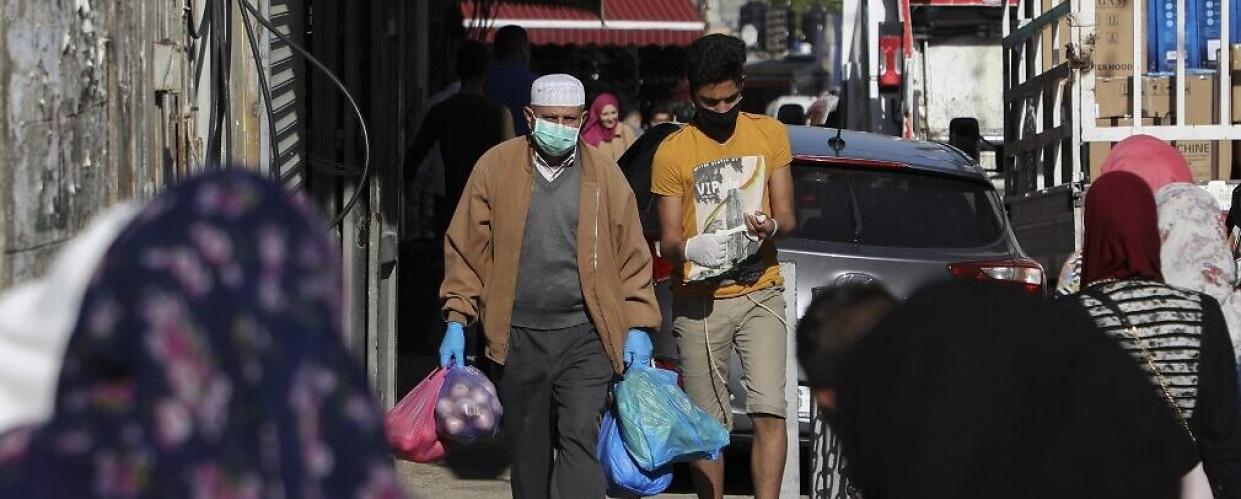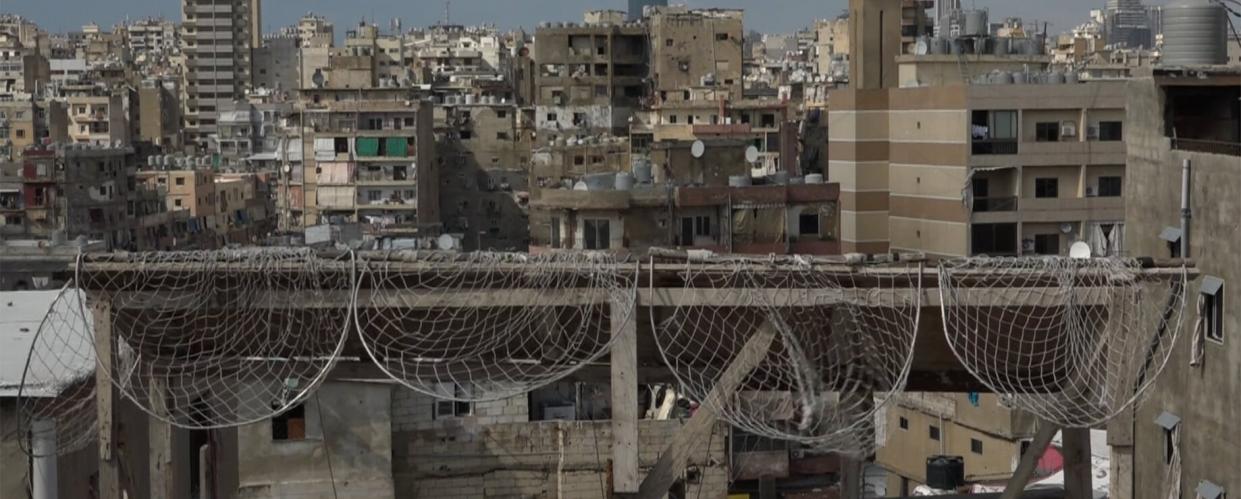
February 22 2021 Arabic

December 23 2020 Arabic

December 22 2020 Arabic

November 26 2020 Arabic

November 03 2020 Arabic

October 27 2020 Arabic

October 19 2020 Arabic

September 10 2020 Arabic

June 08 2020 Arabic


Where can prisoners go? How can they avoid the invisible contagion? They are the ones who have developed a mode of living in the invisible and under invisible surveillance, and have even created a world in invisible spaces. In prison and in the shadow of a permanent oppressive emergency regime, prisoners create their world in deprivation and scarcity, in a state of calm and patience. Without these assets, they could not build a temporary world and draw on the necessary resources of personal steadfastness (sumud).
When the cruel coronavirus season came upon us, I found myself tapping into those prisoner resources, which are crucial assets in times of prohibition, confinement, and watchfulness. People talk about the “patience of Job,” but the patience of prisoners may exceed his, and not because of any divine test but as a result of the reality of a colonial occupation. The confinement currently experienced by society as a whole is the permanent state of affairs in prison. One incarceration has now been added to another more severe one, which is always the case for Palestinians in their permanent state of dismemberment and segregation.
By undertaking a massive collective protest movement and refusing to accept food or nourishment, Palestinian prisoners pressured the prison authorities to carry out a widespread disinfection campaign in the prisons. Even though the prisoner movement is not as strong as it once was, it springs into action when matters relate to the lives of prisoners and their concerns about their family members. It was surprising to see how quickly they rallied and united with one voice, which is their source of strength in difficult times. In prisoner struggles, a convergence of the prisoners’ own efforts and effective external support are the necessary conditions to achieve any progress.
Some legal aid organizations have made valuable contributions in drawing attention to the plight of Palestinian prisoners in the context of the coronavirus crisis. They have also made official approaches to the prison authorities, holding them and the state responsible for the fate and health of prisoners, and bringing them under external scrutiny. They have also asked the authorities to compensate prisoners for the moratorium on family visits by making available the possibility of telephone contact between prisoners and family members for mutual reassurance.
Still, there is concern about the new normal when it comes to daily life. How can prisoners be expected to maintain a two-meter distance between them to avoid spreading the virus, since they do not have so much space either during the day or at night? Their bunkbeds certainly do not offer such a distance. What kinds of anxiety will prisoners experience when they have influenza symptoms during weekends, when prison doctors are not available to diagnose them? How should prison representatives, who are supposed to represent the interests and demands of prisoners, react when the authorities prevent them from doing so on the pretext of the new measures? And if they do allow it, what happens to the raised hopes of prisoners when their requests are refused and their anxieties turn to collective despair? What happens when their requests for appropriate disinfectant and cleaning supplies are rejected by the prison authorities?
******
When I think of individual prisoners, painful memories are evoked. Ever since the beginning of the spread of the virus, the faces of prisoners have been appearing to me. I have known them in times of calm, tension, and anxiety, in times of boldness and fear, in their imprisoned joy and their suppressed sadness. What comes to mind are not numbers and statistics but the many faces, some of which I cannot help but evoke.
I see the face of the 77-year-old man from Acre (‘Akka), still recovering from the effects of a stroke and open-heart surgery, who is waiting to be released in several months. From prison he will be deported directly and put on a plane that will take him from the Israeli coronavirus frying pan to the Greek coronavirus fire. I see the face of a thin 55-year-old man who has chronic osteoporosis, who excels in writing, drawing, and poetry, in the hope that creative expression will lessen his pain. I see the face of the young man from Nablus who carries his life on his palm, and whose body has been penetrated by numerous occupation bullets, some of which are still lodged inside him, since surgery is incapable of extracting them. I also see the face of the young unmarried man whose father was martyred and who was the sole breadwinner for his mother and siblings. And I see the face of a man suffering from muscular dystrophy, whose immune system is compromised, in his fourth decade of imprisonment, and whom you never see complain. These are just some of the many faces that come to mind.
I think that the prisoners’ movement can take care of itself, since its real strength can overcome any racist government or any minister or public official, at least if it knows how to use it. But in a state of emergency, things are different, and even though there’s a need for such a state, the signs are ominous. The Israeli internal security minister directed the prison authorities to take oppressive measures inside the prisons to stop the spread of the virus. That was done not in order to give prisoners the opportunity to recover but rather to prevent them from rising up or escaping from a near certain death. In such an event, the crackdown will be carried out in the name of the prison authorities but will effectively be supported by the police and army. The command of the internal front will be given responsibility for directing civilian affairs under the state of emergency, and that will require observation and vigilance on our part, because the general attitude towards prisoners is hostile and openly vindictive.
Despite the fact that people in our country, as in the entire world, are concerned about their own lives and those of their loved ones, which is only natural, the prisoners remain our collective responsibility.









